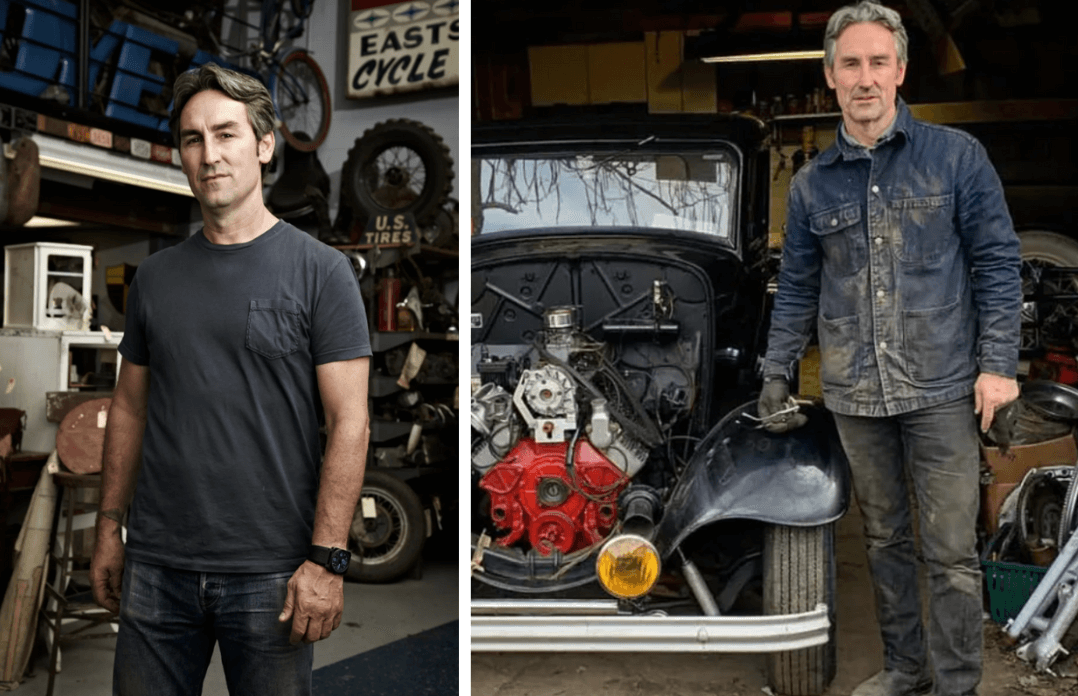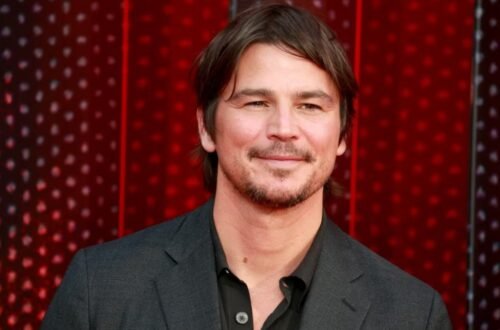When people hear the name Mike Wolfe, they often think of weathered barns, rusty treasures, and hidden Americana. Best known as the co-creator and star of American Pickers, Wolfe has built a career on uncovering artifacts that most would overlook. But beneath the fame and fortune of a successful reality TV series lies something deeper: a commitment to preservation, storytelling, and cultural heritage. This is where the Mike Wolfe passion project takes center stage. It is not simply about finding old motorcycles or antique signs; it’s about protecting history, supporting communities, and ensuring that the stories tied to these artifacts continue to be shared for generations.
The Roots of Mike Wolfe’s Passion Project
The Mike Wolfe passion project didn’t emerge overnight. His love for discovering relics of the past can be traced back to his childhood in rural Illinois. Long before television cameras followed him into barns and sheds, Wolfe was pedaling around on his bicycle, scouting for discarded bicycles, gas pumps, and classic Americana that others had left behind. For him, these weren’t junk items—they were fragments of history, reminders of craftsmanship, and symbols of American ingenuity. That early instinct to value what others deemed worthless laid the groundwork for his broader mission.
As Wolfe transitioned into television fame, the essence of his personal mission remained intact. Rather than focusing solely on the financial value of antiques, his passion project emphasized historical relevance and cultural storytelling. The television platform provided visibility, but the heart of his work stayed rooted in advocacy for preservation and education.
Defining the Mike Wolfe Passion Project
At its core, the Mike Wolfe passion project is about preservation with purpose. It is the combination of his efforts to save small-town main streets, his initiatives to restore old buildings, his investments in American-made craftsmanship, and his relentless work to highlight forgotten stories. Instead of framing these projects as vanity endeavors, Wolfe has intentionally aligned them with community revitalization. He often stresses that America’s backbone lies in its small towns, historic architecture, and blue-collar traditions—values that are at risk of fading in a modern era dominated by mass production and corporate homogeneity.
The project stretches across multiple fronts: television, real estate, cultural heritage, and community activism. Whether he is advocating for the preservation of a historic gas station or highlighting the story of a craftsman through his social media platforms, Wolfe keeps his passion project consistently tied to the larger theme of heritage conservation.
Preserving Main Street America
One of the most visible aspects of the Mike Wolfe passion project is his commitment to revitalizing small towns. He has repeatedly spoken about the cultural importance of main streets—the symbolic heart of many American communities. For decades, main streets have faced economic decline due to suburban sprawl, big-box retailers, and online shopping. Wolfe believes that revitalizing these spaces is not only a matter of architectural preservation but also of social well-being.
Through purchasing and restoring historic properties, Wolfe helps communities breathe new life into buildings that might otherwise be torn down. His approach is both practical and visionary: by creating usable spaces for businesses and cultural hubs, he ensures that these towns have opportunities for economic growth while still celebrating their past. In this way, the Mike Wolfe passion project has a direct impact on local economies and community pride.
Motorcycles, Memories, and the Spirit of Preservation
Another thread woven into the Mike Wolfe passion project is his fascination with motorcycles, particularly vintage models. To Wolfe, a motorcycle is more than just a mode of transportation—it’s a symbol of freedom, engineering creativity, and individual spirit. He has curated collections of rare bikes, not as trophies but as living artifacts that tell the story of American roads and riders.
This passion aligns with his broader philosophy of preservation. Motorcycles, like old barns or neon signs, are part of the American cultural fabric. By collecting, restoring, and showcasing them, Wolfe provides tangible connections to stories of innovation, risk-taking, and personal adventure. His projects often highlight the craftsmen and riders who shaped motorcycle culture, ensuring their contributions are remembered.
Storytelling as a Central Mission
If there is one thing that unites all aspects of the Mike Wolfe passion project, it is storytelling. From the earliest days of American Pickers, Wolfe understood that objects themselves hold little meaning without the human stories attached to them. A rusted Coca-Cola sign becomes valuable not only because it is vintage advertising but because it recalls a time when corner stores were gathering places. An old bicycle isn’t just steel and rubber; it is a memory of childhood freedom and mechanical ingenuity.
Wolfe’s storytelling approach makes his projects resonate on an emotional level. By framing artifacts within their historical and personal contexts, he elevates them from curiosities to cultural touchstones. The Mike Wolfe passion project relies on this human connection to inspire people to care about preservation.
Advocacy Beyond Entertainment
Many public figures stay within the confines of their professional niche, but Wolfe has expanded his influence by using his platform for advocacy. The Mike Wolfe passion project includes partnerships with historical societies, preservation organizations, and community development initiatives. By lending his name and resources to these efforts, he raises awareness about the importance of saving historic sites and traditions.
This advocacy is especially powerful in a modern context where small-town decline and cultural homogenization are pressing issues. Wolfe’s voice reminds people that progress and preservation can coexist. His work encourages local governments, property owners, and residents to invest in heritage as a resource, not a burden.
Education and Inspiring Future Generations
A significant goal of the Mike Wolfe passion project is to inspire younger generations to value history. Wolfe often emphasizes that preservation is not just about looking back—it’s about shaping a better future. By educating young people about the craftsmanship, resilience, and innovation of previous generations, he hopes to instill an appreciation that counters today’s disposable culture.
Through public talks, interviews, and educational partnerships, Wolfe advocates for hands-on learning. Whether it’s restoring an old bicycle or repurposing a historic building, he believes that engaging with history teaches problem-solving, creativity, and respect for community. This educational component ensures that his passion project is not simply about nostalgia but about creating lasting cultural awareness.
Challenges and Criticisms Along the Way
No ambitious endeavor is without its challenges. The Mike Wolfe passion project has faced skepticism from critics who question whether celebrity-driven preservation is sustainable. Some argue that restoring historic buildings is costly and impractical, especially in struggling small towns. Others point out that television fame may skew public perceptions of his efforts, framing them as entertainment rather than genuine activism.
Yet Wolfe’s consistent investment of time, money, and personal energy helps counter these critiques. Unlike fleeting celebrity ventures, his passion project spans decades and demonstrates continuity between his early picking days and his current preservation work. By combining visibility with action, Wolfe demonstrates that passion, when rooted in authenticity, can overcome doubts.
The Broader Impact of the Mike Wolfe Passion Project
The ripple effects of the Mike Wolfe passion project are felt across cultural and economic landscapes. Communities benefit from revitalized buildings, tourists are drawn to restored main streets, and individuals rediscover pride in their local heritage. On a cultural level, his work encourages Americans to reflect on their shared history and appreciate the artistry of earlier generations.
Even beyond the U.S., Wolfe’s efforts resonate with global audiences. The idea of valuing craftsmanship, preserving traditions, and telling human stories is universally appealing. His passion project thus serves as a model for how individuals—celebrity or not—can contribute to heritage preservation.
Looking Ahead: The Future of Wolfe’s Work
The journey of the Mike Wolfe passion project is ongoing. As Wolfe continues to balance television production, real estate development, and community activism, his work evolves with changing times. The rise of digital platforms, for instance, has given him new ways to share stories and advocate for preservation. Through social media, online communities, and virtual tours, Wolfe is expanding the reach of his message.
Looking ahead, it is likely that the passion project will focus even more on sustainability. Preserving buildings and artifacts requires not only care but also adaptation to modern needs. By blending historic charm with contemporary functionality, Wolfe can help ensure that heritage sites remain relevant and usable for future generations.
Conclusion: More Than a Project, a Legacy
At the end of the day, the Mike Wolfe passion project is not about antiques, motorcycles, or television ratings. It is about cultivating respect for history, inspiring pride in community, and ensuring that the stories of the past remain alive in the present. Wolfe’s journey from a young picker on a bicycle to a cultural advocate with national influence demonstrates how passion, when combined with purpose, can shape a meaningful legacy.
His project reminds us all that preservation is not just about saving objects; it’s about saving the soul of communities, the spirit of craftsmanship, and the shared memory of a nation. In that sense, the Mike Wolfe passion project is less of a personal endeavor and more of a collective call to value the past as we build the future.






